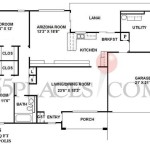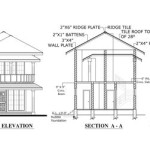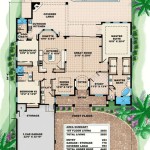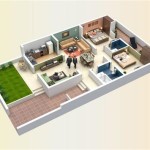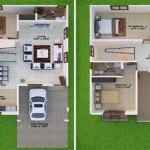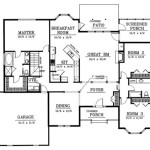Essential Aspects of a Sample Basic Floor Plan
When designing a floor plan, it's essential to consider various aspects to create a functional and aesthetically pleasing space. A sample basic floor plan provides a starting point for planning the layout of rooms, walls, and other features. Here are some essential considerations for designing a sample basic floor plan.
Room Sizes and Shapes
Determine the appropriate sizes and shapes for each room based on its intended use. Consider the number of occupants, furniture requirements, and any specific activities that will take place in each space. A rectangular or square shape is often preferred for ease of furniture placement, while irregular shapes can add visual interest.
Circulation and Flow
Plan for efficient circulation and flow of movement throughout the floor plan. Ensure there is sufficient space for comfortable walking and minimal congestion. Create clear pathways between rooms and avoid creating dead-end spaces. Consider the placement of doors, windows, and staircases to facilitate smooth transition between spaces.
Natural Lighting and Ventilation
Maximize natural lighting by incorporating windows and skylights into the design. Windows provide ample illumination and ventilation, reducing reliance on artificial lighting. Position windows strategically to take advantage of natural daylight and cross-ventilation, which can improve indoor air quality and comfort.
Furniture Placement
Consider the furniture layout within each room. Plan for the placement of essential furniture pieces, such as beds, sofas, and dining tables, to ensure adequate space and functionality. Allow for comfortable circulation areas and avoid overcrowding. Consider the scale and style of furniture to create a harmonious and inviting atmosphere.
Storage Options
Incorporate adequate storage solutions into the floor plan to accommodate personal belongings, household items, and other necessities. Include closets, built-ins, drawers, and shelves to provide ample storage space without cluttering the living areas. Consider the accessibility and functionality of storage options in each room.
Outdoor Spaces
If applicable, consider incorporating outdoor spaces, such as patios, decks, or balconies, into the floor plan. These areas can provide additional living space, relaxation spots, and enhance the overall livability of the property. Plan for the access, size, and features of outdoor spaces to maximize their enjoyment and functionality.
Additional Considerations
In addition to the essential aspects discussed above, consider other factors that may influence the floor plan design, such as:
- Building codes and regulations
- Available budget
- Personal preferences and lifestyle

Sample Floorplan Floor Plan Template

Ready To Use Sample Floor Plan Drawings Templates Easy Blue Print Floorplan Ezblueprint Com

House Plan Drawing Samples 2d Drawings

Ready To Use Sample Floor Plan Drawings Templates Easy Blue Print Floorplan Ezblueprint Com

12 Examples Of Floor Plans With Dimensions

20 Free Floorplan Template

Small House Floor Plan With Dimensions Template

Basic Floor Plans Solution Conceptdraw Com

Free Editable Floor Plan Examples Edrawmax

Sample Floor Plan Image With The Specification Of Diffe Room Sizes Scientific Diagram



